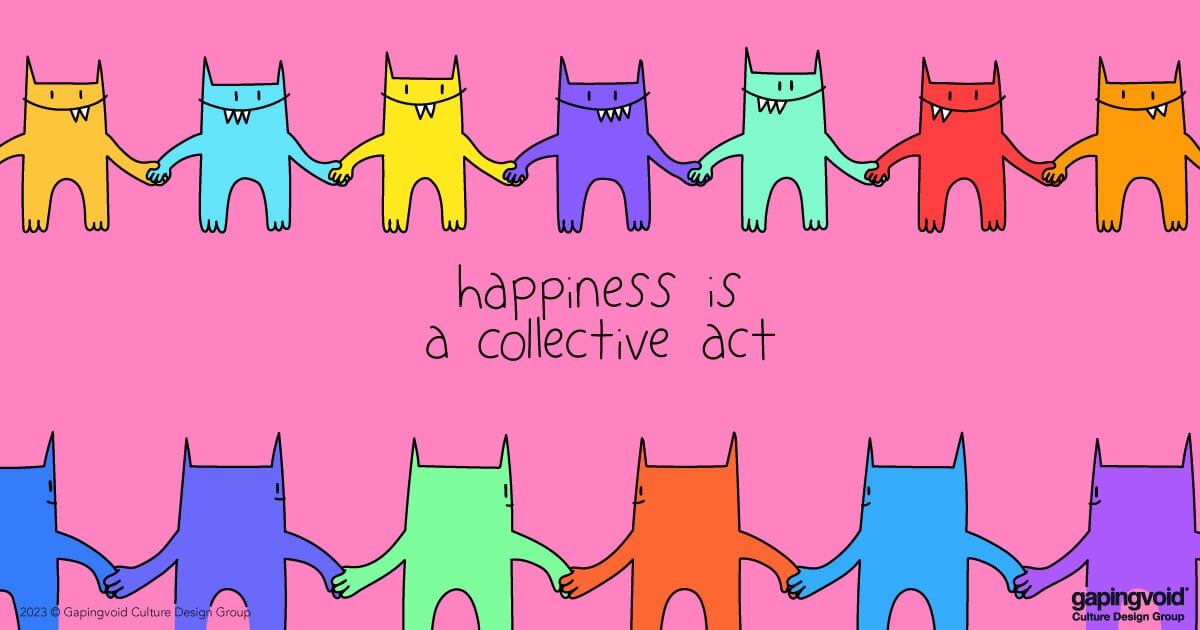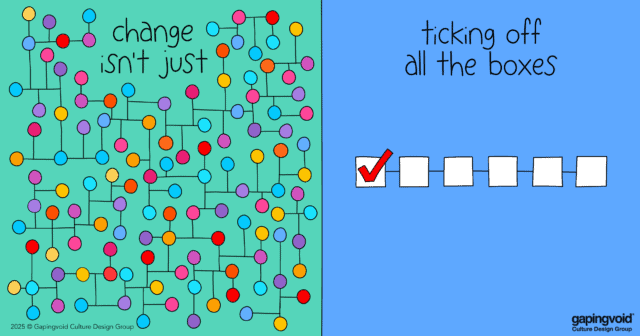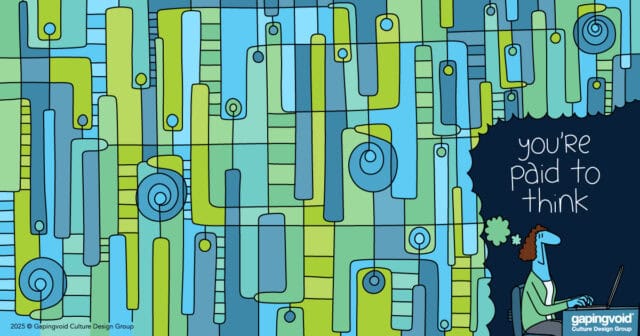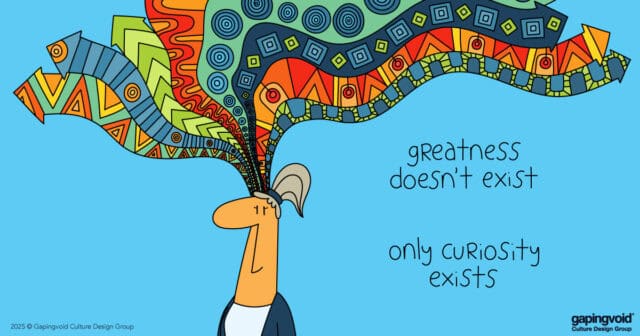
We’re in Italy this week for a client engagement. Walking around the piazza at the center of town has us thinking surely this must be the happiest nation on earth. Chestnuts roasting, singing in the street, wine, laughter, passion, fashion, art, history, culture, sexiness, La Dolce Vita, all the good stuff, how could they not be?
Yet according to the United Nations World Happiness Report, the Finns have been overall the happiest nation on earth for the last six years…
That seems a bit counterintuitive. Unlike the vivacious Italians, the Finns are also known for being very downbeat and aloof, in spite of all that purported happiness.
But as it turns out, that’s not how happiness works.
You see, with the Finns, for most of history they had two very large constants. 1. Like everyone else in the world up until WWII, they were for the most part very, very poor, mostly farming at a subsistence level. 2. They have extremely long, harsh winters.
So what did that mean? Because they were mostly poor, unlike the Russian Tsars, they had no winter palace to go to. Instead, they had to spend winters together, lots of people, huddled together into these small, very crowded wooden huts. All winter long, day in, day out.
When there’s a lot of you huddled into a small space with lots of people without the ability to go outside much, the last thing anyone needs is a lot of drama. So all that “fiery passion” that the Mediterranean’s are known for is off the menu.
The other factor is, when you’re very poor and it’s very cold outside, not getting along with folks is not just unfortunate, it’s a death sentence.
So to survive the winters people got along. It was either that or freeze to death.
All this necessary proximity and interdependence meant people built up strong degrees of trust, community, belonging clues, mutuality, art, language and culture. Not to mention, an ability to not get on each other’s nerves.
In other words, by having to endure their winter together in close proximity, Finns became a hyper-social nation. And as we humans have evolved to be hyper-social primates over millions of years, this is what makes us truly happy.
Yes, people like material wealth and the technological progress and convenience that comes with it, but the social-connection thing affects us all at a much deeper level. That’s because as the Stoic philosophers tell us, humans find purpose in relation to the “Polis,” the community. People, places, and organizations that satisfy this need will always come out on top.
Sounds easy but culture doesn’t just happen in a vacuum. Either on purpose or by accident, culture is designed or designs itself around the complex reality it finds itself in.



